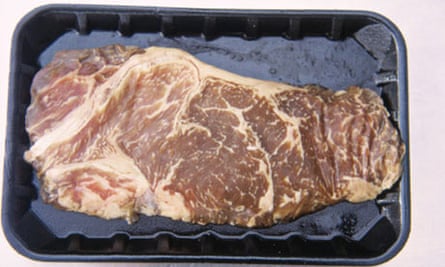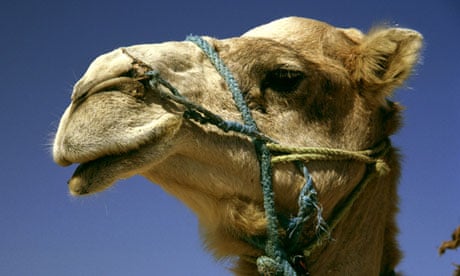It's not often Boris Johnson gets the hump in public (run-ins with Eddie Mair aside). So when the London mayor was presented with a huge platter of camel while on a trade mission in Abu Dhabi, he did what many of us would do, and snapped the dinner with his smartphone.
Boris may not have realised it, but camel meat is prized in the Middle East, according to food writer and chef Anissa Helou. "It's a delicacy; nowhere in the region is it eaten as a daily thing. In Syria and Cairo there are specialist camel butchers, while in the Gulf, camel meat is eaten at parties and wedding receptions." The hump is the most prized part of the animal as it is tender and fattier than the rest of the beast (camel humps are essentially mounds of fat, and not full of water as many people believe). Helou tried camel hump in Abu Dhabi and describes its taste as a "cross between beef and lamb. It was from a baby camel – older camels will taste dry and tough."
It's eaten in North and West Africa too, as French president François Hollande found out last week, when a ceremonial camel given to him as a pet in Mali was turned into a tagine after a misunderstanding by the local family looking after it.

In the UK, you're most likely to come across camel burgers. Chef Luke Mackay cooked a keema curry for a cooking demo at Borough Market in south London, using camel mince from the burgers sold at The Exotic Meat Company stall there. "I browned the meat and tried it before adding any spices – it was sweet, gamey and relatively fatty." Camel burgers are also sold mail order by Exoticmeats.co.uk. "They have a mild flavour similar to veal," says company spokesman Paul Webb. Exoticmeats sources all its camel meat from ranches in the Australian outback, "because the meat is fully traceable and sustainable," he explains. Other cuts on offer include steaks from the rump area, "which cooks exactly like beef", and diced steak . And we may see more Aussie camel meat in Europe soon – the Australian government has sanctioned a wild camel cull. One enterprising Dutch butcher has already imported some of this wild camel meat to sell "camel rolls".
Unlike beef, camel meat is rarely sold aged. Partly because there is "no tradition of ageing meat in the Middle East", according to Helou, and also because the meat would become too dry: "It's a fairly tough animal," says Webb. Understandably, then, camel meat benefits from slow-cooking. French chef Alain Ducasse braised camel meat for five days at a low heat for his camel with duck foie gras at the IDAM restaurant at Doha's Museum of Islamic Art. "Once camel breaks down, it's a very tasty meat," says Webb, who suggests using it in tagines and curries. "You need to marinade camel meat," says Helou. "And eat it well done, not pink like lamb, otherwise it won't be tender enough."
But why go to the trouble of seeking it out? Camel meat is reputed to be healthier than other red meats such as beef – it is leaner and a good source of protein and vitamin E. And it's not just the meat. Camel milk contains three times the vitamin C of cow's milk and is rich in iron and B vitamins. The UN's Food and Agriculture Organisation says that the potential value of a commercial camel milk industry could be $10bn. So if you are reading this in 10 years' time while tucking into a camel burger washed down with a camel shake, you are probably wondering what the fuss is about. But for now, camel meat remains enough of a novelty in the UK to prompt leading politicians to reach for their cameraphones.



Comments (…)
Sign in or create your Guardian account to join the discussion